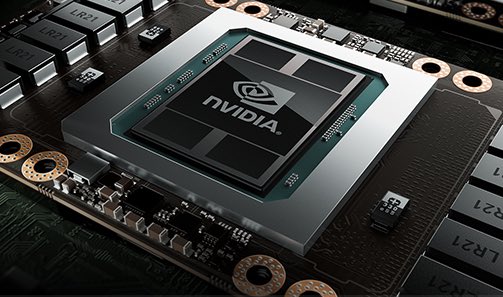Communications of the ACM

The blog archive provides access to past blog postings from Communications of the ACM and other sources by date.
August 2017
From insideHPC
xDCI Infrastructure Manages 3D Brain Microscopy Images at RENCI

 Researchers at RENCI are using xDCI Data CyberInfrastructure to manage brain microscopy images that were overwhelming the storage capacity at individual workstations. “BRAIN-I is a computational infrastructure for handling these…
Researchers at RENCI are using xDCI Data CyberInfrastructure to manage brain microscopy images that were overwhelming the storage capacity at individual workstations. “BRAIN-I is a computational infrastructure for handling these…
From insideHPC
Kathy Yelick to Keynote ACM Europe Conference

 Kathy Yelick from LBNL will give the HPC keynote on Exascale computing at the upcoming ACM Europe Conference. With main themes centering on Cybersecurity and High Performance Computing, the event takes place Sept. 7-8 in Barcelona…
Kathy Yelick from LBNL will give the HPC keynote on Exascale computing at the upcoming ACM Europe Conference. With main themes centering on Cybersecurity and High Performance Computing, the event takes place Sept. 7-8 in Barcelona…
From The Eponymous Pickle
Agile in the C-Suite

In Bain & Company:
How to Make Agile Work for the C-Suite By Eric Garton, Andy Noble
Many companies are attempting a radical — and often rapid — shift from hierarchical structures to more agile environments, in order to operate…
From The Eponymous Pickle
Inc Looks at Skillz

I see that former colleague Andrew Paradise's game company continues to grow. An article in Inc has lots of detail:
How the No. 1 Fastest-Growing Company in America Turned Video Games Into a $54 Million Cash Cow How did America's…
From insideHPC
More Than Ever, Vectorization and Multithreading are Essential for Performance

 Employing a hybrid of MPI across nodes in a cluster, multithreading with OpenMP* on each node, and vectorization of loops within each thread results in multiple performance gains. In fact, most application codes will run slower…
Employing a hybrid of MPI across nodes in a cluster, multithreading with OpenMP* on each node, and vectorization of loops within each thread results in multiple performance gains. In fact, most application codes will run slower…
From Schneier on Security
Do the Police Need a Search Warrant to Access Cell Phone Location Data?

The US Supreme Court is deciding a case that will establish whether the police need a warrant to access cell phone location data. This week I signed on to an amicus brief from a wide array of security technologists outlining…
From The Eponymous Pickle
Facebook Messenger's M

Been asked to go back and look at some of the AI/Assistant components of Facebook M, just launched in the UK after some time in the US. Facebook's work in the AI and machine learning space continues to expand.
In particular look…
From The Eponymous Pickle
Making Calls with the Google Home

I just complained about this, and to be clear it has still not rolled out to me. But apparently is on its way. Some of the apparent differences are described. Have been using the Amazon Echo for this since the start of…
From The Eponymous Pickle
Amazon Pays for Popular Skills

One time small payment, it seems, so does not seem sustainable. The incentive is to get you to go back to the device. Classic engagement. While I have been impressed by the number of skills available, their quality and interest…
From The Eponymous Pickle
Gartner Ranks AI as top Tech to Watch

No surprise, Gartner ranks AI as the top technology to watch in coming years. Includes their time-hype graph of many other technologies. Via SiliconAngle. By Mike Wheatley
From insideHPC
Purdue Adds New Resource for GPU-accelerated Research Computing

 A new computing resource is available for Purdue researchers running applications that can take advantage of GPU accelerators. The system, known as Halstead-GPU, is a newly GPU-equipped portion of Halstead, Purdue’s newest community…
A new computing resource is available for Purdue researchers running applications that can take advantage of GPU accelerators. The system, known as Halstead-GPU, is a newly GPU-equipped portion of Halstead, Purdue’s newest community…
From insideHPC
Video: HPC Reservoir Simulations on AWS with NICE

 In this video, Scott Harrison from Rock Flow Dynamics and Bruno Franzini from NICE Software explain how they scale HPC workloads in the cloud. "You'll learn how they leverage Amazon EC2 Spot instances and Amazon S3 to create
…
In this video, Scott Harrison from Rock Flow Dynamics and Bruno Franzini from NICE Software explain how they scale HPC workloads in the cloud. "You'll learn how they leverage Amazon EC2 Spot instances and Amazon S3 to create
…
From insideHPC
Job of the Week: Sr. Scientific Programmer at Illinois Rocstar

 Illinois Rocstar is seeking a Sr. Scientific Programmer in our Job of the Week. "Have you ever thought that you’d like to write code to model something awesome? Like rockets? Aircraft? Explosions? Advanced battery performance…
Illinois Rocstar is seeking a Sr. Scientific Programmer in our Job of the Week. "Have you ever thought that you’d like to write code to model something awesome? Like rockets? Aircraft? Explosions? Advanced battery performance…
From insideHPC
Philip Diamond from SKA Project to Keynote SC17

 Professor Philip Diamond, Director General of the international Square Kilometer Array (SKA) project, will be the keynote speaker at SC17. "Professor Diamond, accompanied by Dr. Rosie Bolton, SKA Regional Centre Project Scientist…
Professor Philip Diamond, Director General of the international Square Kilometer Array (SKA) project, will be the keynote speaker at SC17. "Professor Diamond, accompanied by Dr. Rosie Bolton, SKA Regional Centre Project Scientist…
From The Eponymous Pickle
Machine Teaching

Out of Micrsosoft Research. O'Reilly Summarises.
Machine Teaching: A New Paradigm for Building Machine Learning Systems
Patrice Y. Simard, Saleema Amershi, David M. Chickering, Alicia Edelman Pelton, Soroush Ghorashi, Christopher…
From The Noisy Channel
On hiQ v. LinkedIn

On August 14th, US District Judge Edward M. Chen granted a preliminary injunction to hiQ Labs in its case against LinkedIn. While I agree with part of the judge’s ruling, I found other parts troubling, and I feel the implications…
From The Eponymous Pickle
QR Codes in China

Have not been using or reading about the use of QR codes of late, interesting how they are being used in China. See also links to previous pieces on QR. Some good, straight forward examples. Key too is how ready the customer…
From Computer Science Teacher - Thoughts and Information From Alfred Thompson
Ideas for Computer Science Teachers from CS Teachers

For me one of the big benefits of social media is getting and sharing ideas from other computer science teachers. Blogs, Twitter, and Facebook are regular sources of good information. I’ve got several to share today.
It starts…From insideHPC
Dell EMC Supercomputer to Power OzGRav Studies of Black Holes

 Today Dell EMC announced it will build a supercomputer to power Swinburne University of Technology’s groundbreaking research into astrophysics and gravitational waves. "We will be looking for gravitational waves that help us…
Today Dell EMC announced it will build a supercomputer to power Swinburne University of Technology’s groundbreaking research into astrophysics and gravitational waves. "We will be looking for gravitational waves that help us…
From insideHPC
Video: Gas Clouds Wither in Galactic Winds

 In this video from Evan Schneider at Princeton University, hot galactic winds destroy a cool cloud of interstellar gas. “The process of generating galactic winds is something that requires exquisite resolution over a large volume…
In this video from Evan Schneider at Princeton University, hot galactic winds destroy a cool cloud of interstellar gas. “The process of generating galactic winds is something that requires exquisite resolution over a large volume…
From insideHPC
Video: How Extreme Energy Jets Escape a Black Hole

 Researchers are using XSEDE supercomputers to better understand the forces at work at the center of the Milky Way galaxy. The work could reveal how instabilities develop in extreme energy releases from black holes. "While nothing…
Researchers are using XSEDE supercomputers to better understand the forces at work at the center of the Milky Way galaxy. The work could reveal how instabilities develop in extreme energy releases from black holes. "While nothing…
From The Computing Community Consortium Blog
DataScience@NIH Updates

Check out the following updates from Data Science at the National Institutes of Health (NIH). Data Science Opportunities: Big Data Neuroscience Workshop 2017 Organized by the Advanced Neuroscience Network (ACNN) September 8 –…
From Daniel Lemire's Blog
On Melissa O’Neill’s PCG random number generator

Computers often need random numbers. Most times, random numbers are not actually random… in the sense that they are the output of a mathematical function that is purely deterministic. And it is not even entirely clear what “really…
From insideHPC
Microsoft Acquires Cycle Computing

 Today Microsoft it has acquired Cycle Computing, a software company focused on making cloud computing resources more readily available for HPC workloads. "Now supporting InfiniBand and accelerated GPU computing, Microsoft Azure…
Today Microsoft it has acquired Cycle Computing, a software company focused on making cloud computing resources more readily available for HPC workloads. "Now supporting InfiniBand and accelerated GPU computing, Microsoft Azure…
From The Eponymous Pickle
Assistants Using Wikipedia

A conversation at Wikipediocracy discusses how personal assistants like Alexa, Google Home and Siri use and attribute (or not) knowledge from the Wikipedia. Back to the complicated world of licenses and copyrights. Was also…
From insideHPC
DeepSat: Monitoring the Earth’s Vitals with AI

 In order to better keep a finger on the pulse of the Earth’s health, NASA developed DeepSat, a deep learning AI framework for satellite image classification and segmentation. DeepSat provides vital signs of changing landscapes…
In order to better keep a finger on the pulse of the Earth’s health, NASA developed DeepSat, a deep learning AI framework for satellite image classification and segmentation. DeepSat provides vital signs of changing landscapes…
From insideHPC
What Developers Need to Consider When Exploring Machine Learning

 Frameworks, applications, libraries and toolkits—journeying through the world of deep learning can be daunting. If you’re trying to decide whether or not to begin a machine or deep learning project, there are several points that…
Frameworks, applications, libraries and toolkits—journeying through the world of deep learning can be daunting. If you’re trying to decide whether or not to begin a machine or deep learning project, there are several points that…
From The Eponymous Pickle
Autonomous Video for the Home

IEEE Spectrum on 'friendly' home robotics. Still awaiting some more detailed looks at its in home use. Continue to cover this, but given the cost will likely not dive in without some convincing.
Kuri Robot Brings Autonomous…
From The Eponymous Pickle
The Dataset that Transformed AI Research

As in the emergence of Big Data, it has been pointed out that the large amount of the right kind of data can make the difference. And it has, opening an entire industry of image recognition and understanding, by sculpting algorithms…
From Schneier on Security
Hacking a Gene Sequencer by Encoding Malware in a DNA Strand

One of the common ways to hack a computer is to mess with its input data. That is, if you can feed the computer data that it interprets -- or misinterprets -- in a particular way, you can trick the computer into doing things…
